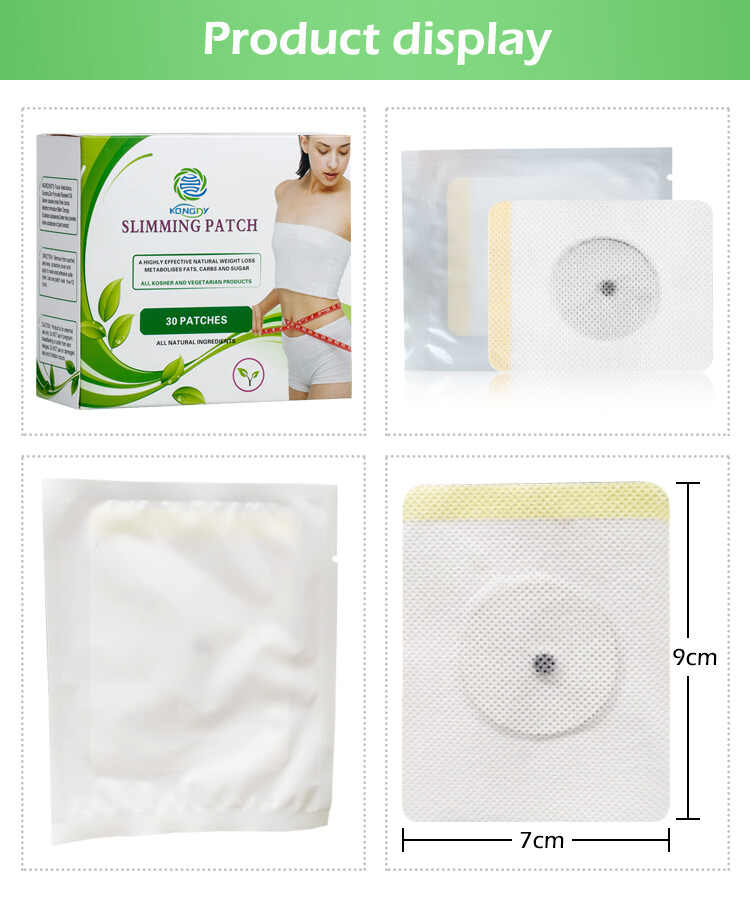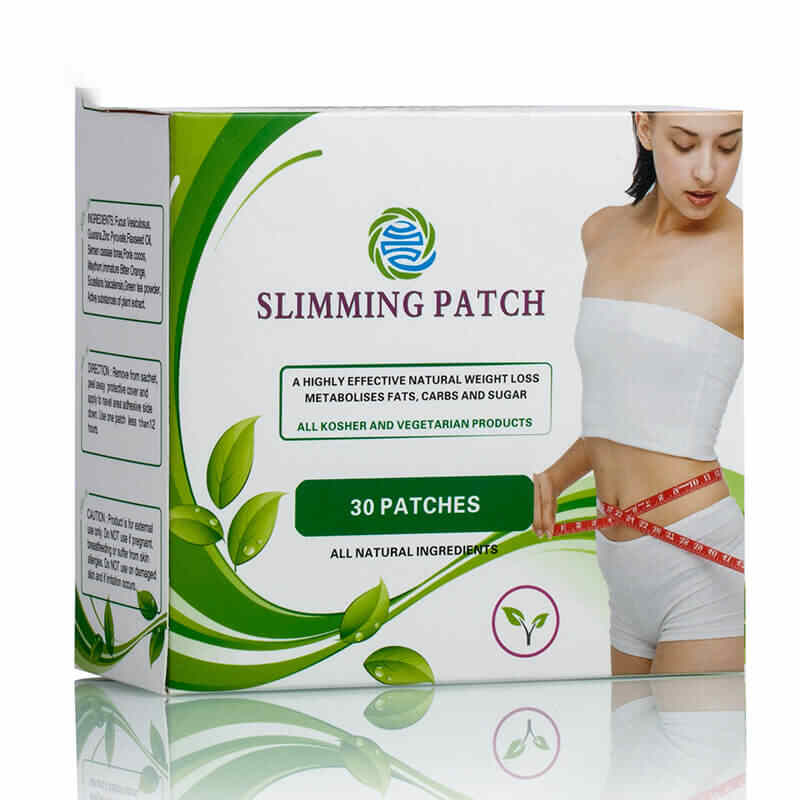Are Custom Weight Loss Patches More Difficult to Get Approved in International Markets?
As the global demand for slimming and wellness products continues to rise, more brands are exploring Custom weight loss patches to stand out in the competitive health industry. However, one of the biggest concerns for businesses is whether Custom weight loss patches are more difficult to get approved in international markets compared to Private Label weight loss patches.
The short answer is: yes, they often are—but for good reasons. Regulatory authorities in different countries have strict frameworks for evaluating products that come into direct contact with the skin and claim health benefits. This means the complexity of approval depends not only on the weight loss patches Manufacturer you choose but also on the formulation, safety data, labeling, and intended market.
This article provides a deep dive into the challenges, approval processes, and solutions for businesses looking to launch Custom weight loss patches internationally.

1. Understanding Market Approval for Weight Loss Patches
International markets treat weight loss patches differently depending on local regulations. In most cases, approval requires compliance with:
Ingredient safety standards (herbal extracts, active compounds, adhesives).
Manufacturing certifications (GMP, ISO, FDA, CE).
Labeling regulations (claims, dosage, safety warnings).
A reputable weight loss patches Manufacturer or weight loss patches Supplier must understand these regulatory differences and guide brands through the compliance process.
2. Why Custom Weight Loss Patches Face More Regulatory Hurdles
While Private Label weight loss patches use pre-approved formulas that are already tested and compliant, Custom weight loss patches introduce new elements that demand additional scrutiny. Challenges include:
Novel ingredients: Introducing new herbal extracts or combinations often requires safety testing.
Unique formulations: Modifying absorption rates or patch technology may trigger new regulatory classifications.
Claims on packaging: Strong claims such as “clinically proven to reduce fat” attract higher regulatory review.
Market-specific rules: What is acceptable in Asia may not be allowed in the EU or U.S.
As a result, Custom weight loss patches usually require more documentation, clinical validation, and longer timelines for approval.
3. Comparing Custom vs. Private Label in International Approval
| Factor | Private Label Weight Loss Patches | Custom Weight Loss Patches |
|---|---|---|
| Approval Speed | Faster (existing formulas already compliant) | Slower (new formulations must be tested) |
| Documentation | Minimal (standard safety reports provided) | Extensive (toxicology, stability, efficacy studies) |
| Cost of Compliance | Lower | Higher |
| Market Entry Risk | Lower risk | Higher risk but higher differentiation |
| Best For | Startups, quick launches | Established brands seeking uniqueness |
This table shows why many businesses start with Private Label weight loss patches for quick entry and later move to Custom weight loss patches once they are ready for the complexity of international approval.
4. Regulatory Requirements in Key Markets
a) United States
Overseen by the FDA.
Patches are often classified as dietary supplements or cosmetics depending on claims.
Custom weight loss patches may require additional ingredient safety data.
b) European Union
Overseen by the European Medicines Agency (EMA) and cosmetic regulators.
Strong focus on labeling, safety dossiers, and banned ingredient lists.
Custom formulations often require toxicology reports.
c) Asia (China, Japan, Korea)
China requires CFDA approval with detailed ingredient data.
Japan has strict functional food and quasi-drug classifications.
Korea emphasizes safety and innovation, but local weight loss patches OEM manufacturers often help streamline approvals.
d) Middle East & Africa
Regulatory frameworks vary.
Religious or cultural preferences (e.g., halal certifications) may apply.
5. Role of the Manufacturer in Simplifying Approval
Choosing the right weight loss patches Manufacturer or weight loss patches OEM partner can dramatically reduce approval challenges. Look for suppliers who:
Provide safety and efficacy documentation for each ingredient.
Have GMP, ISO, FDA, or CE certifications.
Offer regulatory support services for different markets.
Have experience with both Private Label weight loss patches and Custom weight loss patches.
Can adapt formulations to meet market-specific restrictions.
A professional weight loss patches Supplier acts not only as a producer but also as a regulatory guide, saving brands time and cost.
6. Strategies to Speed Up Approval for Custom Weight Loss Patches
Start with proven ingredients: Using widely accepted herbal extracts reduces approval hurdles.
Leverage manufacturer’s documentation: Ask your weight loss patches OEM partner for ready-to-use safety reports.
Limit claims on packaging: Avoid exaggerated claims until full clinical proof is available.
Work with local consultants: Hire regulatory experts in each target market.
Begin with Private Label, then customize: Many brands test demand with Private Label weight loss patches before investing in Custom approval.
7. Cost Implications of International Approvals
Private Label weight loss patches: Minimal costs, often limited to packaging translations and import permits.
Custom weight loss patches: Higher costs due to laboratory testing, dossier preparation, and potential clinical trials.
Although Custom patches are more expensive to get approved, they also offer stronger brand identity and consumer loyalty once launched.
8. Long-Term Business Strategy
The most convincing strategy for international expansion is to combine both approaches:
Step 1: Launch with Private Label weight loss patches (lower risk, faster approval).
Step 2: Build market presence and consumer trust.
Step 3: Transition to Custom weight loss patches with unique ingredients and technology for long-term differentiation.
By working with a reliable weight loss patches Supplier, you can ensure a smooth shift from quick entry to unique brand positioning.
9. Final Thoughts
Yes, Custom weight loss patches are more difficult to get approved in international markets compared to Private Label weight loss patches. The complexity comes from new ingredients, unique formulations, and stricter documentation requirements. However, with the right weight loss patches Manufacturer and weight loss patches OEM support, these hurdles can be managed effectively.
Brands aiming for global expansion should start small with Private Label, then scale to Custom once they have the resources to handle international approval. This two-step strategy minimizes risk while maximizing long-term brand strength.
Related Questions and Answers
Q1: Why are Custom weight loss patches harder to get approved internationally?
A1: Because they introduce new ingredients and formulations, requiring additional safety, efficacy, and regulatory testing.
Q2: Is it easier to start with Private Label weight loss patches for global markets?
A2: Yes. Private Label uses pre-approved formulas, making compliance faster and less costly.
Q3: How can a weight loss patches Manufacturer help with approvals?
A3: They provide certifications, documentation, and regulatory guidance tailored to each market.
Q4: Do different countries have different patch approval rules?
A4: Yes. The U.S., EU, Asia, and Middle East all have unique frameworks and ingredient restrictions.
Q5: Should I skip Custom weight loss patches due to approval difficulties?
A5: Not necessarily. While approval takes longer, Custom patches provide brand uniqueness and stronger market positioning in the long run.






